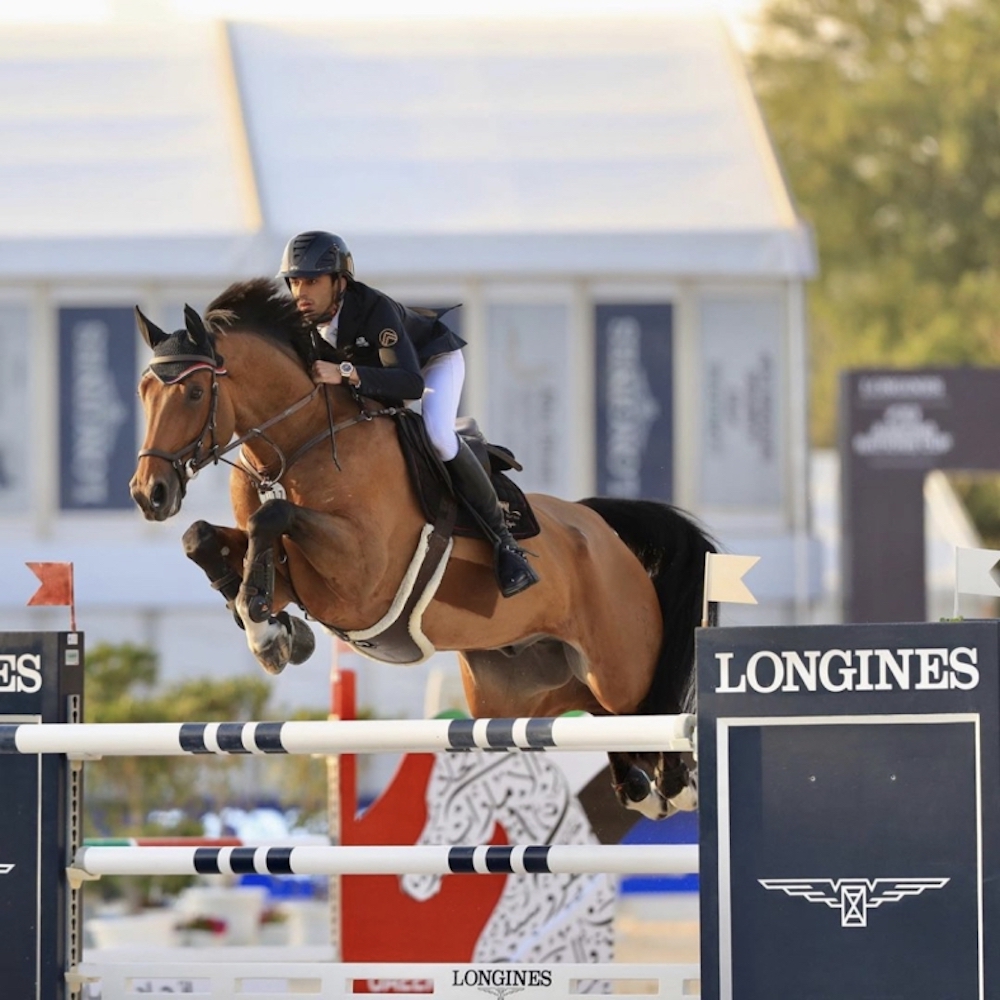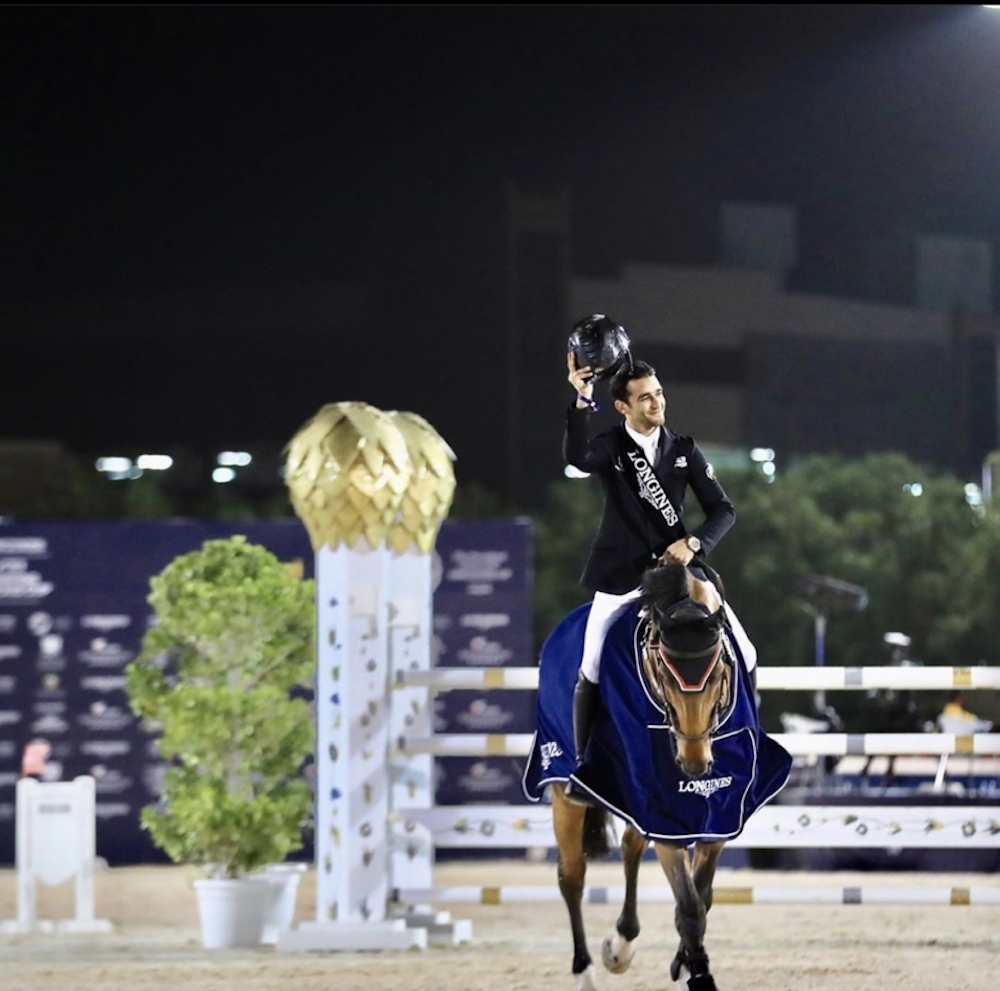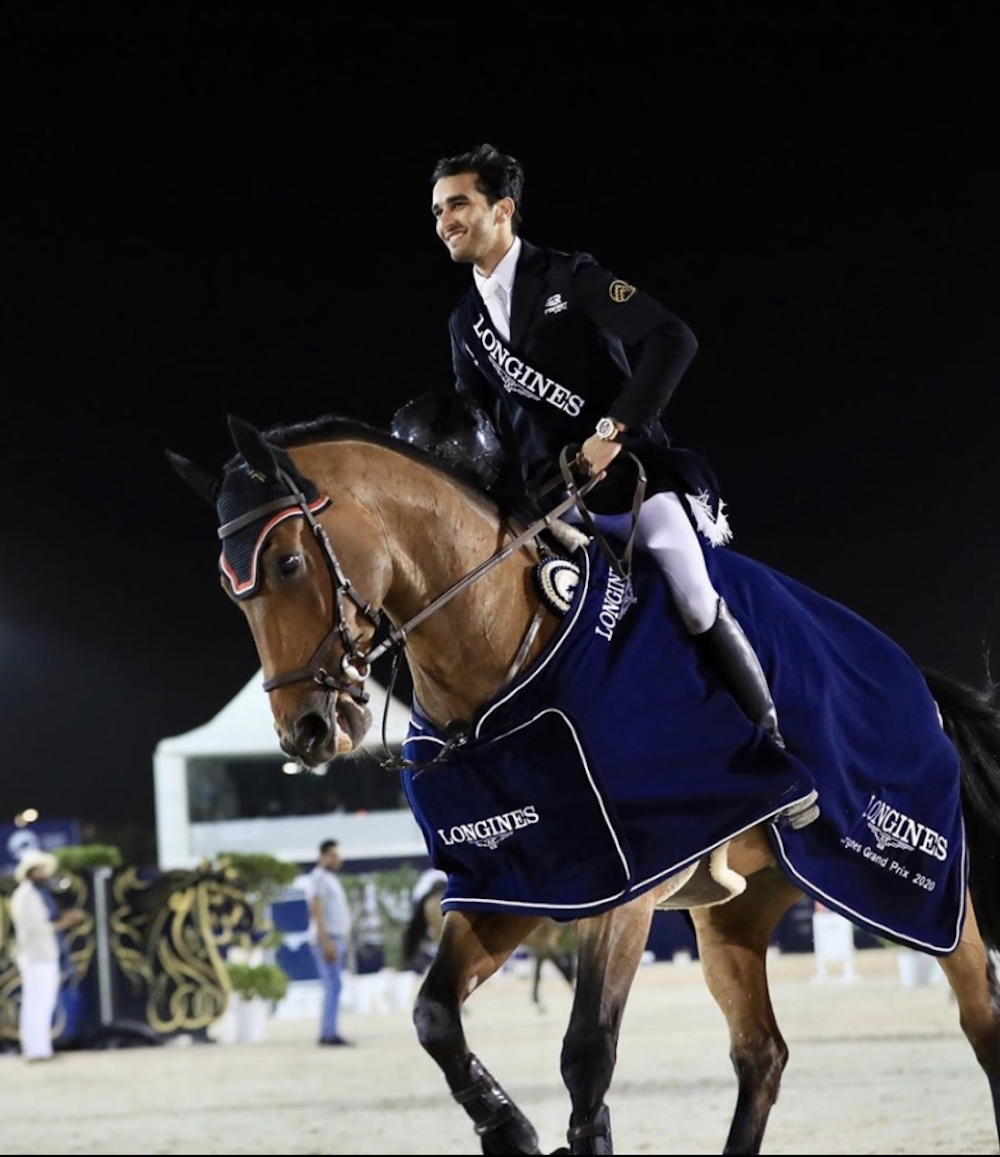CAIRO: Whatever happens from here on, Mohamed Zeyada (also known as Mouda) will always be remembered as the Egyptian equestrian whose team achieved something that has eluded the country for more than 60 years: Securing a spot at the Olympic Games.
Now 25, Zeyada has been riding since the age of 5. “It all started when my parents and I were in Smouha Club in Alexandria, and the big sand arena full of horses caught my eye,” he said.
“As a child, I asked my mother if I could ride a horse, but of course she refused. That day, I wouldn’t leave the club until I got on top of one of those horses. I haven’t stopped riding since.”
Zeyada’s mother was terrified at first, but as his biggest supporter and manager, she plunged into the world of horseback riding.
“Despite her fears, my mother learned the ins and outs of the sport,” he said. “Now she’s an FEI level 3 jury, so she actually gets me asking her for rules.”

Egyptian rider Zeyada has been riding since the age of 5. (Supplied)
The passionate showjumper was only 6 when he took part in his first competition, which was hosted at Abdel Said’s private farm in Alexandria.
Together with Said, another member of the national showjumpers team, Zeyada would train on the difficult fences first.
With the constant support of his mother and Hesham Hatab, president of the Egyptian Equestrian Federation and of the Egyptian Olympic Committee, Zeyada was ready to move on to bigger things by the age of 13.
“Growing up, I used to idolize Karim El-Zoghby. Back then, Karim was in the Netherlands, and in order for me to get the training I needed to become a world-class rider, I too had to move there. Balancing between my studies and riding in the Netherlands required dedication, discipline and persistence,” Zeyada said.
“A few years later, joining pharmacy school didn’t make that task any easier. I remember skimming through 14 lectures a day just to catch up on my studies. My mom was my only motivation. Without her constant support, I wouldn’t have been able to tackle all these challenges.”

The passionate showjumper was only 6 when he took part in his first competition. (Supplied)
These were not the only challenges facing Zeyada. Egypt was long banned from importing and exporting horses, which prevented the ambitious young athlete from riding in World Cup qualifiers or sending his horses abroad.
“I felt imprisoned, stuck with no way out. Back then, I decided to put my training on hold just so I can focus on my studies. I felt that the time, money and effort spent on this sport weren’t taking me where I wanted to be,” he said.
“I didn’t quit, but I only participated in shows, and I can safely say this was surely one mistake I learned from.”
All the hard work finally paid off for Zeyada and the national team when the all-star quartet scored Egypt its first-ever Nations Cup win in Morocco. Shortly after, the team went on to the Olympics qualifier games.
“We haven’t had that much support. We were all training, riding and competing independently,” Zeyada said.
“It’s just recently that we started receiving some financial support to help ease the burden. We were able to prove that we can deliver results with very limited resources.”

While the dedicated rider looks calm and collected on the outside, he admits that the Tokyo Olympics will not be an easy task. (Supplied)
While the dedicated rider looks calm and collected on the outside, he admits that the Tokyo Olympics will not be an easy task. (It has been postponed due to the coronavirus pandemic, and is now set to take place in July-August 2021.)
“Qualifying for the World Cup games is a win on its own. It’s something we haven’t done in 60 years, but it’s only the beginning,” Zeyada said.
“We’re going through extensive preparations. I just qualified my second horse, just to make sure I have a plan B in case anything goes wrong. My show plan is already set and communicated with all my team members, from my grooms to my vet and my blacksmith,” he added.
“Currently, I’m pampering my horses with the best training, health, grooming and happiness routines. Ultimately, the goal here is to get my horse, my partner, in tip-top shape, both physically and mentally.
“Winning isn’t possible without a partnership, a relationship with your horse. To be up there on top, everyone has to give 100 percent.”
* This report is being published by Arab News as a partner of the Middle East Exchange, which was launched by the Mohammed bin Rashid Al Maktoum Global Initiatives to reflect the vision of the UAE prime minister and ruler of Dubai to explore the possibility of changing the status of the Arab region.




























